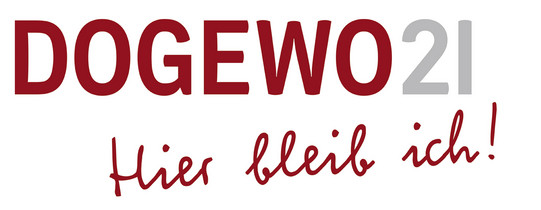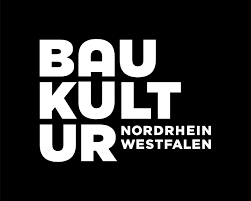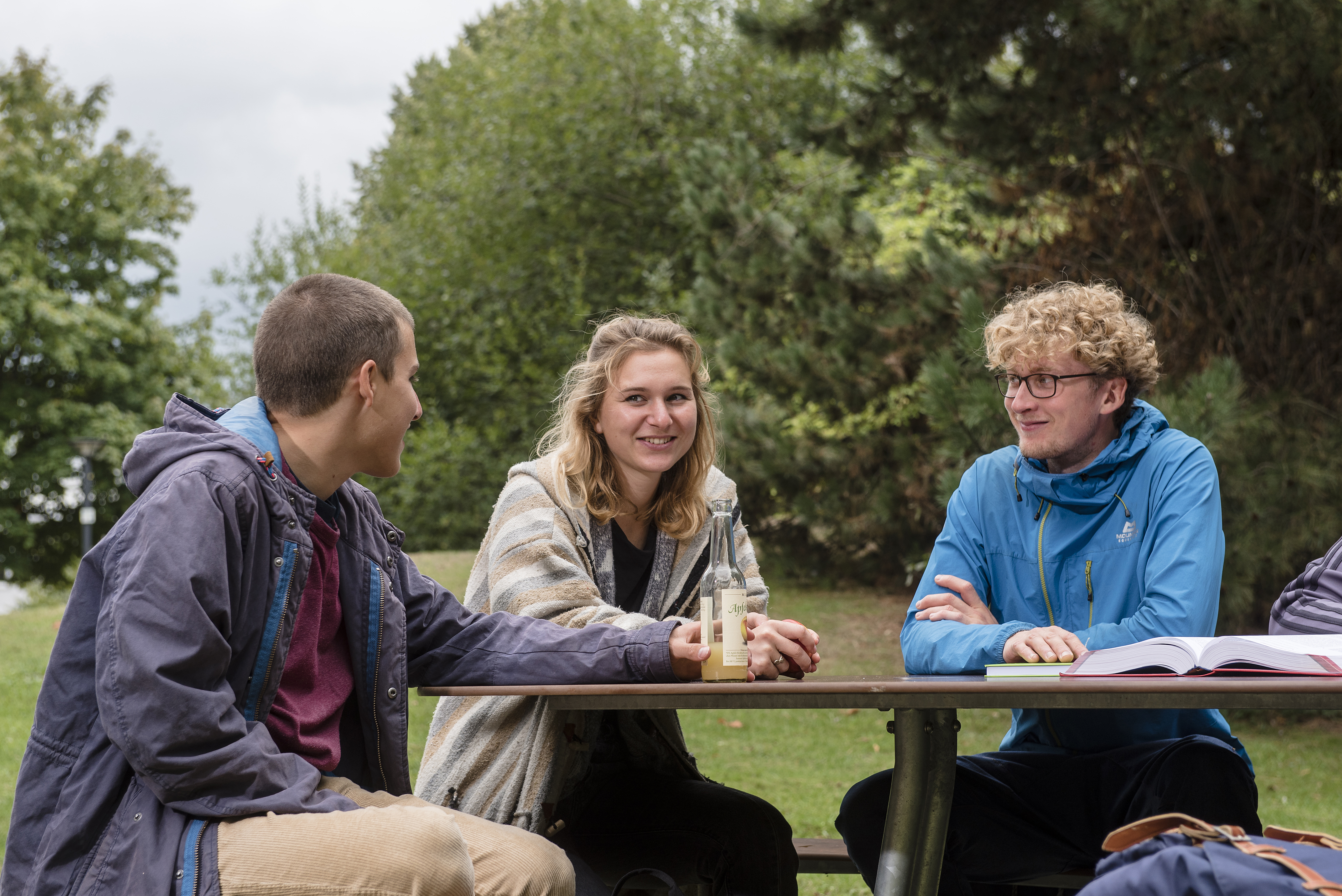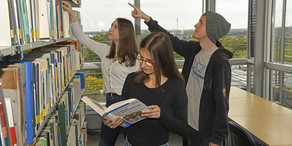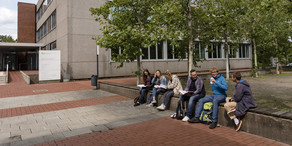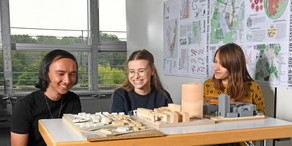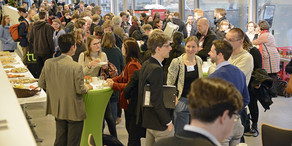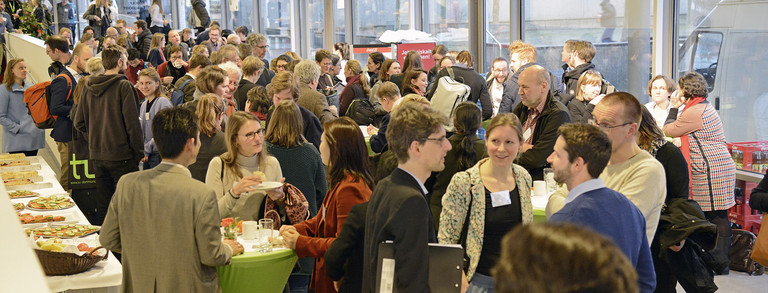Call for Abstracts & Roundtables | until 07.10.2024
In western spatial planning practice, relatively stable basic assumptions are often implicitly assumed: Urban development is predictable, property is robust, institutions are stable, the financial system works and geopolitical and environmental influences remain largely stable. However, the current crises - climate, energy, housing – are shaking the foundations of such an assumption of stability. What does this mean for planning? Most areas are dedicated, their plannability is fixed - but are the purposes still the right ones? What are the reasons for planning in times of multiple crises?
Keynotes
| Assoc. Prof. Heidi Falkenbach | Professor of Real Estate Management in the Department of Built Environment, Aalto University |
|---|---|
| Prof. Dr Dr Ortwin Renn | sociologist, economist and sustainability scientist |
| Prof. Dr. Richard Norton | Professor of Urban & Regional Planning, University of Michigan |
Tracks
Comparative planning research has experienced an upswing at least since the publication of the European Spatial Development Perspective (ESDP) in the late 1990s. In recent years, Comparative Urbanism, which explicitly takes the so-called Global South into account as a dimension of comparison, has attracted particular attention. Despite a large number of publications, cross-national comparison in the planning sciences is methodologically and theoretically weakly contoured. Methods such as QCA were adopted rather late from other disciplines. Comparisons are often based on small numbers of cases, while large-N comparisons or explanatory typologies are rarely used. The track provides an opportunity to discuss the theoretical and methodological state of the art of comparative planning research.
The topic of the conference is well suited for this discussion, as we can assume that the appeal “planning due to crises” leads to very different national, regional and local reactions.
For this track, we expect theoretically inspired and/or methodologically sophisticated contributions to comparative planning research. Economic and financial crises, the corona pandemic, climate and environmental crises, resilience and, last but not least, legitimacy crises can be addressed.
The track is supported by the DFG-funded Comparative Planning Research Network.
Chair: Prof. Dr. Karsten Zimmermann, Prof. Dr. Othengrafen
What contribution can and should planning make to address the major crises of our time? What role does it play in view of the seemingly overwhelming complexity of the challenges? The answer to these questions depends largely on what is considered to be planning.
Is planning an act of power to reduce complexity, does it translate politically defined goals into effective measures, does it work incrementally on concrete improvements or does it aim to build strategic consensus in fragmented societies? There is no consensus on this in the planning discipline. However, the trend is towards integrated approaches in which sustainability and social justice are of fundamental importance. Are ideological convictions therefore the binding core of the discipline, as Gunder and Hillier (2009) suggest, linking spatial planning as a creative act and as a science? And is Davoudi (2015) right when she argues that the evolution of planning has happened at the cost of a vaguely defined and diffused intellectual foundation?
In the Planning Theory track, theory-based approaches to describing, explaining and conceptualizing changing planning in times of multiple crises are put up for discussion. Changing political and social conditions in a polarized society, the enormous pressure to act in the face of acute crises, pose fundamental challenges for spatial planning. This includes dealing with seemingly contradictory logics and requirements, such as short-term adaptability vs. long-term sustainability of planning measures or accelerated procedures vs. holistic, integrative and communicative planning processes.
Contributions are welcome that reflect empirically and analytically on the transformation of planning by means of case studies and aim at a better understanding of planning practice as well as those that deal with conceptual approaches for the further development of planning theories and thus indirectly also with instructions for action for planning practice.
Possible topics include
- Planning under changing political conditions
- Necessity, legitimacy and rationality of planning in times of crisis
- Dealing with complexity, uncertainty and instability in planning
- Accelerated planning and short-term planning adjustments
- Communicative and participatory planning in a polarized society
- Planning systems and practices between constancy and change
Chair: Prof. Dr. habil. Thorsten Wiechmann
Co-Chair: Dr. Martin Sondermann, AR
Spatial planning takes place in an environment that is increasingly characterized by dynamics, uncertainties and complexity. How can planners realign practice and achieve accelerated planning? Theoretical and empirical contributions are sought for this purpose. A reference to the guiding principles of “equivalent living conditions” or “territorial cohesion” is particularly desirable.
- A) Use of formal planning techniques and computing capacities
It is important to show how uncertainties in planning processes and plan drafts can be dealt with. The shortage of skilled workers has also reached rural areas and can change migration patterns. In particular, the consequences of the pandemic, “New Work” and Generation Z are creating uncertainties, although it is unclear how stable the trends are and how they affect the relationship between town and country. The priority is to close the data gaps. Examples of regional population forecasts and scenarios derived from them are particularly desirable. - B) Making planning better and faster
Good planning takes time, but the political discussion is being shaped by the “new Germany pace”. We are looking for good examples of better and faster planning and rapid implementation, although possible “collateral damage” is also of interest. - C) Resilience and adaptability in “impossible” times
The multiple crisis situation is putting the path dependency of previous developments to the test. After the outbreak of war on the European continent, scientific discourse must take greater account of the impossible and its social and spatial consequences. We are looking for research into corresponding scenarios and the capabilities of artificial intelligence in interior design.
Chair:
Co-Chair: Dr. Markus Eltges (BBR), Prof. Dr. Axel Priebs (ARL), Prof. Dr. Rainer Danielzyk (ARL
Housing is a human right. The provision of housing is one of the major tasks for spatial planning; but also a major challenge. Housing scarcity affects not only affordable housing but also other submarkets. Aside from that, housing policy is challenged with a plethora of goals, some of which overlap or even clash. They span from affordability and inclusivity to design requirements, resource management and climate neutrality.
Land is part of the problem, but it can also be part of the solution. Housing needs land to reside on. Land policy is increasingly recognized as a fundamental element of social and welfare-oriented urban development. Planning provides land for housing. This entails the provision of land as well as the establishment of framework conditions for sustainable urban development through both land and housing policy.
This track invites contributions dealing with the political and planning dimensions of land and housing with a special focus on their complex interdependencies. This goes beyond institutional and instrumental perspectives, but includes social, economic, and urban design issues, as well as strategic aspects of land and housing policy.
Chair: Prof. Dr. Thomas Hartmann
Co-Chair: Dr. Michael Kolocek, ILS, Fabian Wenner, TUM
SUrban areas and urban societies are experiencing permanent change, which is exacerbated by multiple crisis events. These changes occur with respect to both the economic base and industry structures as well as with respect to socio-spatial and built structures. Similarly, institutional frameworks and stakeholders of urban planning are not static but undergoing change and development, too. This session addresses the causes, outcomes and effects of urban development. Within that framework, it also focuses on dynamically changing frameworks and preconditions for sustainable urban spatial planning. The track’s objective is to discuss contributions that either elaborate on general trends of urban development or address particular opportunities and limits of spatial planning interventions on a local scale.
Possible topics are:
- Transformation of inner city areas and urban centers
- Changes in housing and housing market conditions
- Processes of social and spatial change in cities and potentials of steering these processes towards a more balanced and justice-oriented outcome
- Challenges associated with growing and shrinking cities, especially regarding urban infrastructures
- Strategies, tools and processes of sustainable urban development, urban transformation and climate change adaptation
- Issues concerning the governance of spatial planning on a municipality level
Chair: Prof. Dr. Stefan Siedentop
Co-Chair: Marion Klemme, BBS
Quartiere und Nachbarschaften spielen eine zentrale Rolle für den sozialen Zusammenhalt (in) einer Stadt. In Zeiten multipler Krisen tritt deren widersprüchliche Bedeutung allerdings deutlich zutage. In Quartieren kristallisieren sich Netzwerke und Knotenpunkte für Solidarität und Nachbarschaftshilfe. Planung kann zu lebendiger und nachhaltiger lokaler Entwicklung beitragen, z.B. über gemeinwohlorientierte Immobilien- und Bodenentwicklung, die Stärkung zivilgesellschaftlich Engagierter und Formen der urbanen Koproduktion. In Quartieren materialisieren sich zugleich aber auch die gesellschaftlichen Konflikte um Macht, Anerkennung und Ressourcenverteilung in sehr konkreter Form, z.B. in Auseinandersetzungen um die Nutzung öffentlicher Räume, im den Zugang zu Wohnraum und Infrastrukturen oder in Exklusionsprozessen.
Können Quartiere Orte sein, um unterschiedliche Bedürfnisse und Interessen offenzulegen und tragfähige Lösungen zu finden? In diesem Track stehen die vielfältigen Herausforderungen, Konflikte und Kämpfe im Vordergrund, die sich auf lokaler Ebene aus der krisenhaften Gesellschaftsentwicklung ergeben. Dazu gehören die Analyse spezifisch lokaler Aushandlungsprozesse zu Themen wie Flüchtlingsunterbringung oder Rechtspopulismus ebenso wie Formate und Transformationsstrategien zur Förderung von Toleranz, Demokratie und Inklusion auf Quartiersebene.
Chair: Prof. Dr. Susanne Frank
Co-Chair: Sabine Weck, ILS
Digital data and information as well as computing technologies are established powerful tools in spatial and urban planning and monitoring. Recent and progressing developments in corresponding technologies, such as participatory apps and web portals, data processing and sharing systems, new types of (networked) sensors, digital twins, the proliferation of increasingly easy-to-use computing environments, and artificial intelligence open new possibilities for spatial planning while also reshaping and creating new forms of digitally molded spatial practices, for example, in the domains of urban mobility and land-use. On the other hand, because they influence the ways in which planners, decision-makers, and citizens interact among and which each other, the penetration of these technologies in spatial planning, and society in general, requires critical reflections on issues of inclusion, participation, privacy, place identity, and wellbeing. Furthermore, the digitalization of space and place – and the way planning responds to it – is also pivotally linked to a number of contemporary crises. The COVID pandemic has normalized digitally-induced practices such as working from home, which has changed the way people interact with space on a daily basis; spatial injustice is increasingly a matter of digital infrastructures and digital savviness of one’s surrounding milieu; and the increasing radicalization of parts of our societies is taking place largely online, with immediate implications for spatial practices in the material world. In this track we open a space of exchange on these and related matters and thus welcome methodological contributions, case-study reports, as well as critical and theoretical reflections on the potential of, and concerns around, digital data and computing technologies for spatial planning and management, especially in crisis situations.
Chair: Jun.-Prof. Dr. René Westerholt
Co-Chair: Tessio Novack, ILS
Investigations – Strategies – Implementation – Evaluation Green and Blue Infrastructure (GI) is increasingly regarded as prerequisite of a sustainable development of urban and regional areas, especially in times of multiple crises. On the other hand, urban green and water often is not considered as an important factor to preserve or optimize ecosystem services in daily local decision making. Thus, both trends seem to exist at the same time, the deterioration or even destruction of urban green and water as well as their functions, and the development of new parks and urban/regional green aiming at an improvement of life quality and ecosystem services. We invite researchers and practitioners to contribute to this topic, especially with regard to multiple crises, based on their empirical or practical experience comprising at least one of the following topics:
- Assessment of Ecosystem Services of Urban Green/GI
- Urban Green/GI and Climate Change
- Social, Cultural and Economic Relevance of Urban Green/GI
- Planning and Governance of Urban Green/GI, especially with regard to critical
- Infrastructures
- Urban water management – chances for green infrastructure/GI
- Abstracts and/or presentations are welcome in English or German.
Chair: Prof. Dr. Dietwald Gruehn
Co-Chair: Prof. Dr. Mathias Kaiser, KaiserIngenieure, Hon. Prof. TU Dortmund
Ambitions for a sustainable transformation and decarbonization of the transport system are facing numerous challenges and numerous crises. It is open for debate, how substantial change can be accomplished, including individual behavioral change and an adaptation of regulatory framework and political objectives.
Considering interdependencies between individual dispositions as well as spatial and socio-economic conditions, this includes a large variety of topics: the shift from driving to active travel and public transport use, climate protection, the reduction of emissions, transport poverty and unequal access to activities, usage of new mobility services (‘mobility as a service’, MaaS), the just, but conflictive distribution of street space, the interdependencies of urban structures and usage of transport infrastructure, improvements in traffic safety, and many more. Increasing automation and interconnectedness can be seen as being of growing importance in this respect. In sum, there are many “causes for planning”.
At the same time, it has become clear in past decades that a sustainable transformation of transport systems requires a different understanding of transport policy and planning. This encompasses discussions on the political impact of technical guidelines, the emergence of new actors, e.g. from civil society, as well as the rising importance of alternative planning formats such as street experiments and living labs. This shows the necessity of an expanded understanding of transport policy and planning.
Methodologically rigorous evaluation studies about transport concepts are rare. Therefore a better understanding of transport trends are of great importance for sustainable transport development. This not only includes transport on the local (and, increasingly, the regional) level, but also the ever growing long-distance transport on the interregional and international levels. These connections are highly differentiated as regards their spatial, economic and social structures.
We seek contributions
- that are dedicated to any topics of sustainable transport development in a spatially, economically and/or socially differentiated way, and based on systematic methods.
- qualitative as well as quantitative (or combined) approaches are welcome.
- We focus on transdisciplinary approaches for testing innovative approaches of sustainable transport planning and design.
- a special focus shall be on longitudinal approaches (e.g. trend studies, repeated cross-sections, and panel studies) or scenarios of ‘new’ trends, that trace relevant trends and take into account the spatio-temporal contexts of transport generation.
- We especially welcome contributions with a focus on transport poverty, social participation and mobility justice.
- in the face of increasing ambivalences and contradictions within the context of social and technological change, we are interested in the regulatory possibilities of transport policy and planning on the one hand, and mobility behaviour on the other hand.
Chair: Prof. Dr. Joachim Scheiner
Co-Chair: Thomas Klinger, ILS
Masterplans for large-scale (re)developments must necessarily deal with uncertainty when envisioning the future state of an urban area. In (re)defining the socio-spatial configurations of significant parts of cities, planners are required to address pressing political, social, economic, and environmental issues and opportunities. From this perspective, a fundamental challenge is that while addressing today’s state of affairs, large-scale (re)development projects must demonstrate their ability to persist, remain flexible, and continuously adapt to future lifestyles, technologies, and scenarios that can hardly be envisioned nowadays. Essentially, the act of masterplanning unfolds within a relatively short period, yet its impact endures in the long term, spanning different generations.
This track welcomes reflections and studies of past and contemporary large-scale masterplanning concepts and practices and the extent to which they deal with the challenge of long-term adaptability capacity. It includes different perspectives: planning law and property rights issues; innovative urban design approaches; supportive monitoring methods; multi-stakeholder governance; diachronic analysis and assessments; and others. The main scope of the track is to collect a multiplicity of reflections and ideas on how to improve the act of master planning based on the investigation of real trends and practices.
Chair: Dr. Stefano Cozzolino, ILS
Co-Chair: Dr. Fabio Bayro Kaiser, RWTH Aachen University,
Multiple crises make it clear that a paradigm shift is immanent – a different kind of planning is needed. A lot of existing planning stems from times that were created under different assumptions, prerequisites and paradigms that can no longer be maintained today or in the future. In view of finite resources and the need for a future-orientated transformation of existing buildings, there can no longer be a tabula rasa, nor can there be a “greenfield site”. Space and land are subject to diverse and multiple utilisation requirements, and both are already in multiple ownership and use. Plans – including land-use plans – must be able to incorporate this in the future, they must build on what is there and on what is to come: vegetation, animals, building (remains), fixtures, history, social behaviour, etc.
At the same time, access to space and land is not equally distributed. Forms of co-habitation and co in general are still niches. How can urban development, architecture and planning be grasped in such a way that the spatialisation of conditions that can be experienced and is materialised in them – i.e. the paradigms that shape them – can be articulated, grasped and negotiated?
The track will discuss the new complexity for the planning. How can what exists and what has become, i.e. the existing situation, become the starting point for planning, architecture and urban development? What methods do we use to gather what kind of data and how could this be transferred into planning processes? What is (made) visible and how, and what is not? Who and what are stakeholders? And which planning formats, processes and concepts are used to involve them and to increase their value? How can this be incorporated into existing planning instruments, such as land-use plans – or how do these plans need to be updated in order to be able to react to an uncertain future without having a liberalising effect? How can the issue of justice be brought together with the issue of access to and distribution of land?
Chair: Prof. Dr. Renée Tribble
Co-Chair: Prof. Dr. Gabu Heindl, Universität Kasse
Limited access to resources, systemic barriers, and exclusion from societal benefits reinforce disparities and increase marginalization. Mobility constraints, both physical and virtual, further hinder marginalized groups from advancing their livelihoods. Disruptions like the pandemic exposed deep- rooted inequalities, such as digital divides, and access to resources and employment opportunities.
Marginalized groups in urban areas were disproportionately impacted by these disruptions, and their livelihoods continue to be affected. This conference track brings together discussions that recognize the intersectionality of factors contributing to marginalization in diverse urban settings.
Chair: Prof. Dr. Sophie Schramm, Dr. Dorcas Nyamai
Der politische Wille zur Beschleunigung einer ganzheitlichen Energiewende manifestiert sich aktuell in zahlreichen Änderungen der rechtlichen Rahmenbedingungen.
Neben der planungsrechtlichen Beschleunigung von Ausbauvorhaben für Erneuerbare Energien (u. a. durch RED III, EEG-Novelle 2023, WindBG) kommen neue Planungsverfahren wie zum Beispiel die kommunale Wärmeplanung hinzu.
Bei all diesen Prozessen scheint die räumliche Planung sowie eine vorausschauende Bodenpolitik nur randlicher Akteur, Zuschauer oder bestenfalls Umsetzungsgehilfe zu sein. Droht erneut ein weiterer Bedeutungsverlust vorausschauenden öffentlichen Handelsn, insbesondere der räumlichen Planung (Eichhorn/Diller/Pehlke 2023)? Welche Rolle soll oder wird zukünftig die Raumplanung im Spannungsfeld zwischen hoheitlicher Steuerung und partizipativer Akteursorientierung einnehmen?
Welchen Beitrag leisten die Raumplanung und Bodenpolitik zur Bewältigung der vielfältigen Zielkonflikte in Zukunft? Wie müssen sich Planungsverfahren verändern, um trotz Beschleunigung die Umweltbelange angemessen zu berücksichtigen (vgl. ARL 2024). Da die Energiewende in Zukunft stärker im Bestand stattfinden muss, erhält die (ökonomische) Mitbeteiligung der Zivilgesellschaft in vielen Bundesländern zudem einen deutlich höheren Stellenwert (Eichenauer/Gailing 2023).
Der Track soll die benannten Fragen aus unterschiedlicher Perspektive beleuchten. Zusammenfassend stellt sich für die Beiträge die Frage: Braucht die Energiewende die Raumplanung noch?
Chair: Dr.-Ing. Martin Schulwitz
Co-Chair: apl. Prof. Dr. Thomas Weith, ILS
The effects of climate change differ from region to region. The options and strategies for dealing with its consequences at local level are likewise diverse. Climate protection measures are subject to intensive, conflict-laden debates in numerous fields of action. In contrast to climate adaptation, however, they need to be coordinated globally in order to at least limit global warming to a “tolerable” level. But what does “tolerable” mean, and to whom? Coping and adaptation capacities vary greatly at different spatial levels and involve a wide range of actors, including local initiatives.
The challenges of climate change affect numerous areas of spatial development. Climate adaptation strategies have been discussed in Germany for around 20 years. Climate change is one of several major crises that affect each other and whose effects are partly reinforcing each other. Governance for mitigation and adaptation is therefore essential. Solutions have been debated for years, e.g. at international climate conferences. However, geopolitical trends are making target-oriented debates on effective climate protection at international and national level more difficult and are creating new forms of competition for increasingly scarce financial resources.
At the “implementation level”, it is clear that climate adaptation is also an integrative task in the federal states, regions and municipalities, to be carried out under time pressure. The track deals with both international and German approaches to climate adaptation. It addresses options for effectively implementing climate protection and conflicting goals between climate protection and adaptation. It also deals with the social impacts of climate change in different contexts (migration, urban development, infrastructure, services of general interest, spatial inequality, etc.). A focus will be placed on the questions of climate adaptation and climate protection in specific spatial contexts: how does spatial planning affect resilient regions or municipalities in the context of climate change? Who will be shaping “climate governance” for climate-adapted infrastructures, land use or societal contexts in the future?
Chair: Prof. Dr. Stefan Greiving
Co-Chair: Dr. Barbara Warner, ARL
On the day before the conference, we invite all PhD students participating in the conference to join a PhD workshop. The workshop is aimed at all PhD students, regardless of the stage of their doctoral thesis and will take place all day on February 10, 2025.
We invite all PhD students participating in the conference to join a PhD workshop on the day before the conference, The workshop is aimed at all PhD students, regardless of the stage of their doctoral thesis and will take place all day on February 10, 2025.
Especially in times of multiple crises, the doctoral path is also characterized by complexity and interdependencies and also requires a high level of personal resilience. The ability to adapt to the unexpected is therefore a central characteristic for future research work, which is characterized more than ever by an inter- and transdisciplinary approach. The aim of the workshop is to give PhD students the opportunity to exchange their research ideas, results and problems with other young scientists in an informal atmosphere. This is made possible by different, exchange-oriented formats that address both content and methods. In the morning we would like to discuss your methods, in the afternoon your content.
- Are you wondering who is doing a doctorate on similar topics?
- Would you like to discuss your methods and content?
- Are you facing a methodological or content-related challenge and would like to hear the opinions of others?
Register for this workshop parallelly to submitting your paper in one of the 14 DOKORP tracks and share with us which question(s) you would like to discuss in the PhD workshop. Participation is independent of whether your paper is accepted for one of the DOKORP tracks.
The registration deadline for the workshop ends with the Call for Papers for DOKORP 2025 on 01.09.2024.
Open PhD-Workshop
February 10, 2025
9:00 am - 6:00 pm
Campus South
TU Dortmund University
We invite Roundtable Proposals for the 2025 DOKORP conference. Roundtables are dedicated interactive sessions organized during the conference.
Your roundtable should be described with a brief statement of 250 words or less that explains the significance of the topic, goals of the meeting, and a suggested target audience including a (tentative) list of roundtable participants. Note that roundtable participants need to register as participants to the conference.
There are only limited slots available for roundtables. Roundtable proposals will be recieved and accepted/rejected by the organizing committee staff.
in cooperation with
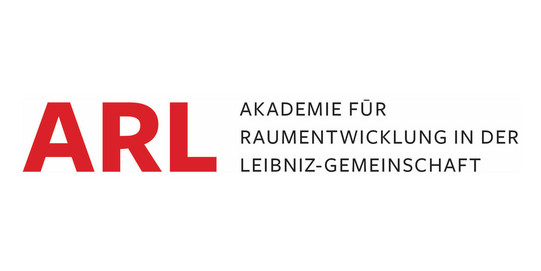
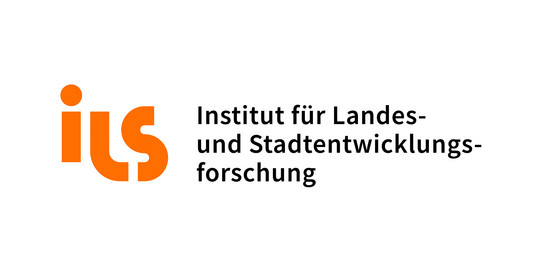
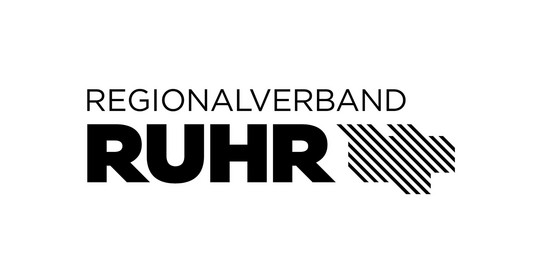
With kind support of
